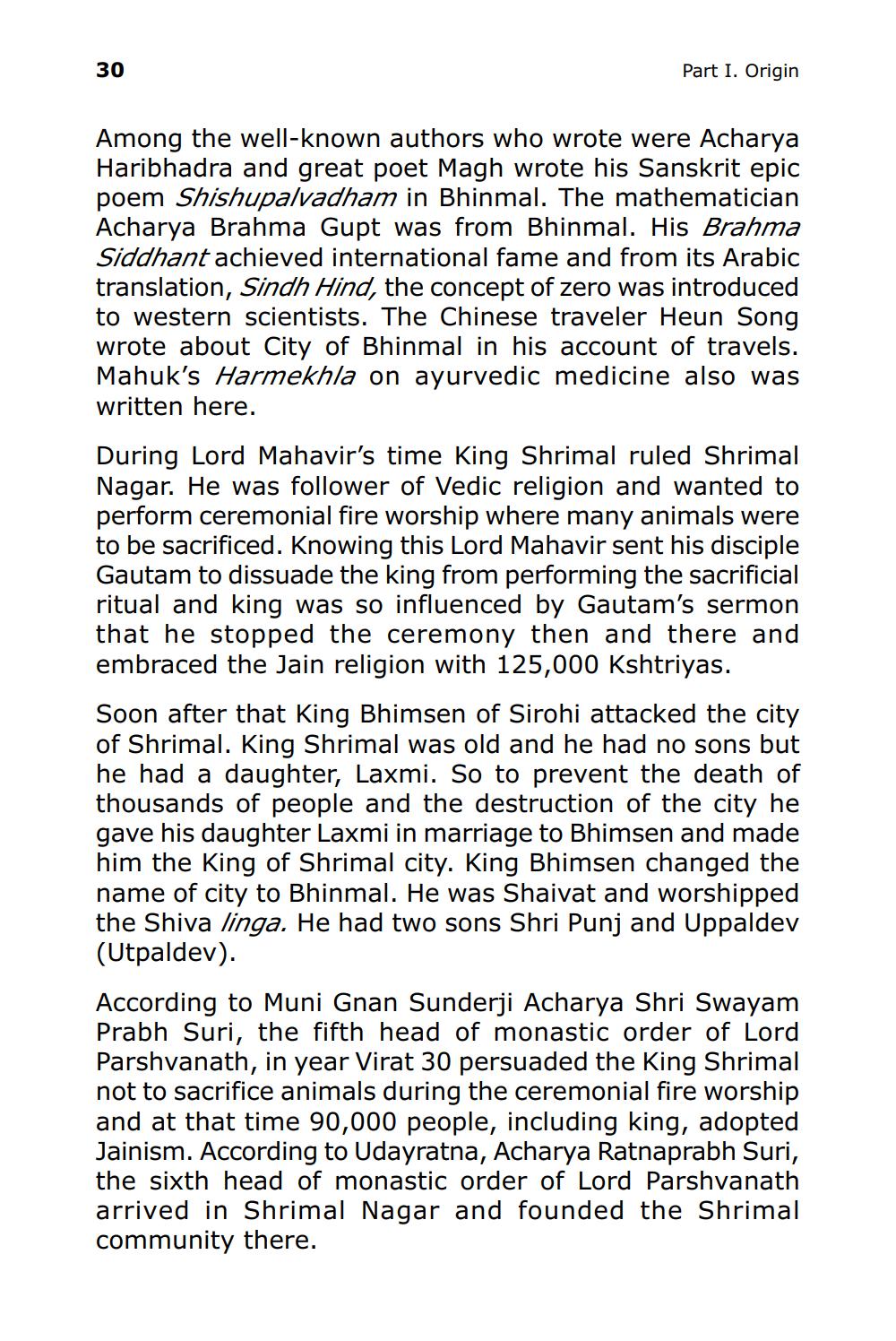________________
30
Part I. Origin
Among the well-known authors who wrote were Acharya Haribhadra and great poet Magh wrote his Sanskrit epic poem Shishupalvadham in Bhinmal. The mathematician Acharya Brahma Gupt was from Bhinmal. His Brahma Siddhant achieved international fame and from its Arabic translation, Sindh Hind, the concept of zero was introduced to western scientists. The Chinese traveler Heun Song wrote about City of Bhinmal in his account of travels. Mahuk's Harmekhla on ayurvedic medicine also was written here.
During Lord Mahavir's time King Shrimal ruled Shrimal Nagar. He was follower of Vedic religion and wanted to perform ceremonial fire worship where many animals were to be sacrificed. Knowing this Lord Mahavir sent his disciple Gautam to dissuade the king from performing the sacrificial ritual and king was so influenced by Gautam's sermon that he stopped the ceremony then and there and embraced the Jain religion with 125,000 Kshtriyas.
Soon after that King Bhimsen of Sirohi attacked the city of Shrimal. King Shrimal was old and he had no sons but he had a daughter, Laxmi. So to prevent the death of thousands of people and the destruction of the city he gave his daughter Laxmi in marriage to Bhimsen and made him the King of Shrimal city. King Bhimsen changed the name of city to Bhinmal. He was Shaivat and worshipped the Shiva linga. He had two sons Shri Punj and Uppaldev (Utpaldev).
According to Muni Gnan Sunderji Acharya Shri Swayam Prabh Suri, the fifth head of monastic order of Lord Parshvanath, in year Virat 30 persuaded the King Shrimal not to sacrifice animals during the ceremonial fire worship and at that time 90,000 people, including king, adopted Jainism. According to Udayratna, Acharya Ratnaprabh Suri, the sixth head of monastic order of Lord Parshvanath arrived in Shrimal Nagar and founded the Shrimal community there.




